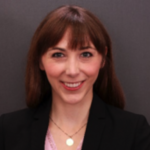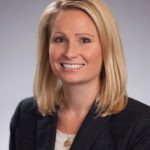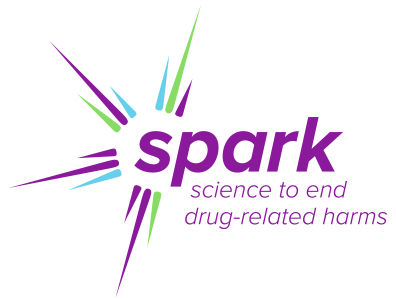An interview with this quarter’s featured affiliated faculty members


We would like to orient readers to who you are. Could you tell us about yourself?
Justine Welsh: I’m a child adolescent and adult addiction psychiatrist for Emory, and I run the Emory Healthcare Addiction Services. I was born in Ohio, but I have spent time in Alaska and Massachusetts. My mother is Australian, so I have dual citizenship with Australia, and I’ve spent a lot of time traveling back and forth and visiting my family. I have been in Atlanta on and off for eight years, working for Emory Healthcare for five years now. Regarding what I like most about Atlanta, I love the diversity of the population and the ability to experience different cultures.
Courtney Yarbrough: I was born in metro Atlanta and am a native Georgian. I earned my Ph.D. in Public Administration and Policy at UGA’s School of Public and International Affairs. I lived for two years in France and a short period of time in Virginia. But otherwise, I have been in Georgia. For hobbies, I play tennis, and I love to bake. When I get a chance, I like to go hiking. I like Atlanta because you can go to different parts of the city and they’re different neighborhoods, each with their own character. I love the Emory area in particular because there is a residential feel, but you are close to the big city’s hustle and bustle.
Tell me about your journey to study drug-related harms.
Courtney Yarbrough: When I started my Ph.D. program in health policy, the opioid use crisis was beginning to gain more attention in the media. Policymakers were beginning to take note and enact more policies around opioid prescribing. At the time, I was looking for interesting new public policies that would affect people at the end of life. One of the policies that many states were adopting was prescription drug monitoring programs, which are just databases to track people’s use of opioids and other controlled substances. My first idea was how restricting access to prescribing opioids could have some unintended consequences on this population who is in acute need. And that was how I began looking into the public policy role surrounding opioid use and substance use more broadly. I turned my attention towards the area of policy risk related to substance use.
Justine Welsh: My background is in medicine. During my residency, I really enjoyed working with individuals with substance use disorders and seeing how much of a difference evidence-based treatment can have in saving someone’s life. I witnessed a lot of turnover of older individuals and saw what untreated long-standing addiction can do to someone’s life. So I’ve really been focused on early intervention and prevention. I went into child Adolescent Psychiatry to work with younger individuals, and I start seeing patients at the age of 14 and above.
Tell me about your current projects.
Justine Welsh: I have R21 examining health disparities and trends in opioid-related treatment for adolescents and young adults. We’re using data from publicly subsidized state-licensed or certified substance use treatment centers. I have another project under the same umbrella examining stigma around medication use for opioid use disorder in Georgia treatment centers. Dr. Yarbrough and I also have a project together underway in Georgia pharmacies.
Courtney Yarbrough: That project is funded by Spark, and we are halfway done with it. It’s interesting because a lot of research has been done in recent years, looking at the availability of either harm reduction methods or treatment options for opioid use disorder. We know very little about the availability of the options through pharmacies, which is where most people obtain their prescriptions. It’s kind of a black box. For the project, we are focusing on Georgia and what ways the pharmacies might play a role for people with opioid use disorder. We are also studying whether pharmacies are selling sterile syringes to individuals. The project has two parts to it. The first part is to understand the differences between rural and urban pharmacies. The second part is to conduct in-depth interviews of the pharmacists themselves to understand what we are finding through the surveys. My other major project is a KO1 award related to primary care physicians prescribing buprenorphine treatment for opioid use disorder. The project aims to understand how primary care physicians can play a more important role and make buprenorphine treatment available.
What is your favorite project that you have worked on so far? Why is it your favorite?
Justine Welsh: My favorite project is the one that we just published that was in conjunction with Dr. Greenfield at McLean Hospital. We adapted and piloted a treatment manual for young adult women with substance use disorders. We collected quantitative and qualitative data on substance use outcomes, as well as the group process. I love clinical research, where you get to meet people and see who you’re impacting, and see the results in real-time.
Courtney Yarbrough: I’m doing work right now with some collaborators looking at opioid prescribing for postpartum women after they deliver. It’s still in its early stages but I really enjoy the subject, as there hasn’t been much attention on this topic. There have been some studies of prenatal opioid prescribing but not a great deal about postpartum prescribing. I think it’s an important topic so I’ve enjoyed delving into it and hopefully finding a way to improve women’s outcomes.
What are some of the greatest challenges in your line of work?
Justine Welsh: For me, it’s time management and unpredictability. I always feel like there’s so much to do, and sometimes things such as patient crises take over other obligations. You have to be flexible, and that’s something I am still working on.
Courtney Yarbrough: Since much of my work is about data analysis, finding good sources of data can always be a challenge. It can be hard to be able to answer the questions that you’re hoping to answer. In our current project with the surveys, we didn’t expect it to happen during a pandemic, and I think that has made data collection a little more challenging. Since I’m not usually someone who’s collecting primary data, it’s been eye-opening to tackle those challenges.
What would you say to someone thinking about developing a career that followed in your footsteps?
Justine Welsh: I would say find a really good mentor who can guide you. I still receive monthly supervision sessions with one of my mentors, Dr. Hilary Connery that help me focus on short- and long-term goals and prioritize projects. I would also advise you to learn when to say yes and when you need to turn something down.
Courtney Yarbrough: I would have to second that the mentor piece in your early career, in particular, is kind of critical. I would emphasize finding and fostering those relationships as much as possible and then advancing more in your career to remember the importance of those relationships and mentor the people coming up behind you.
